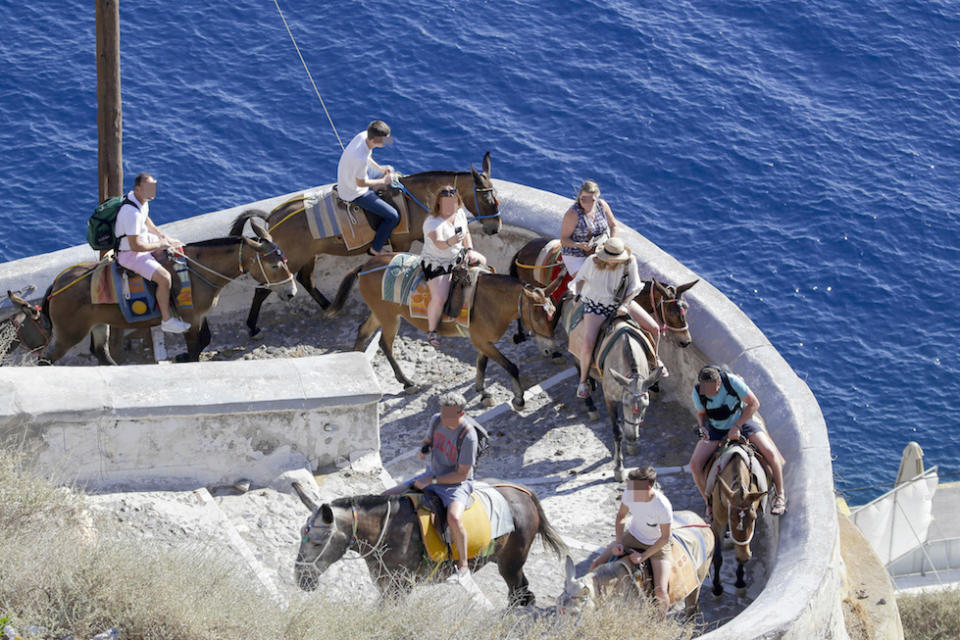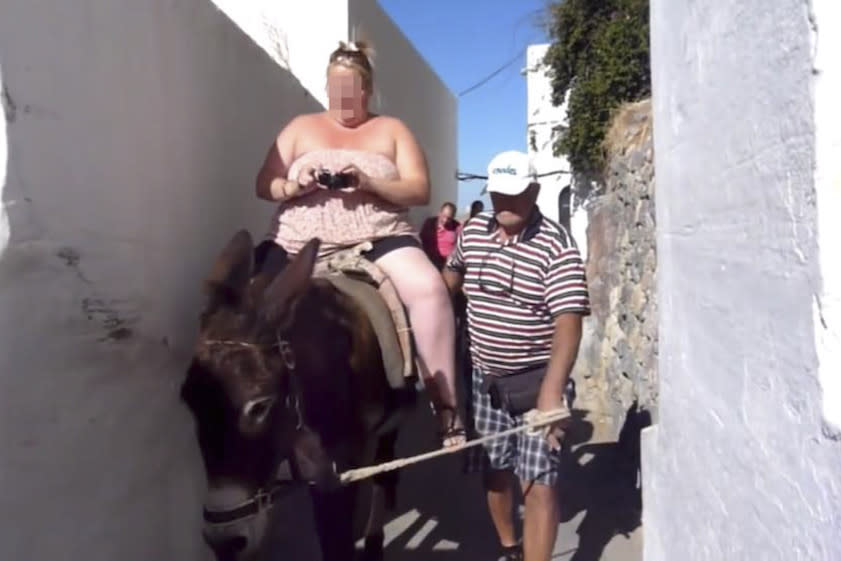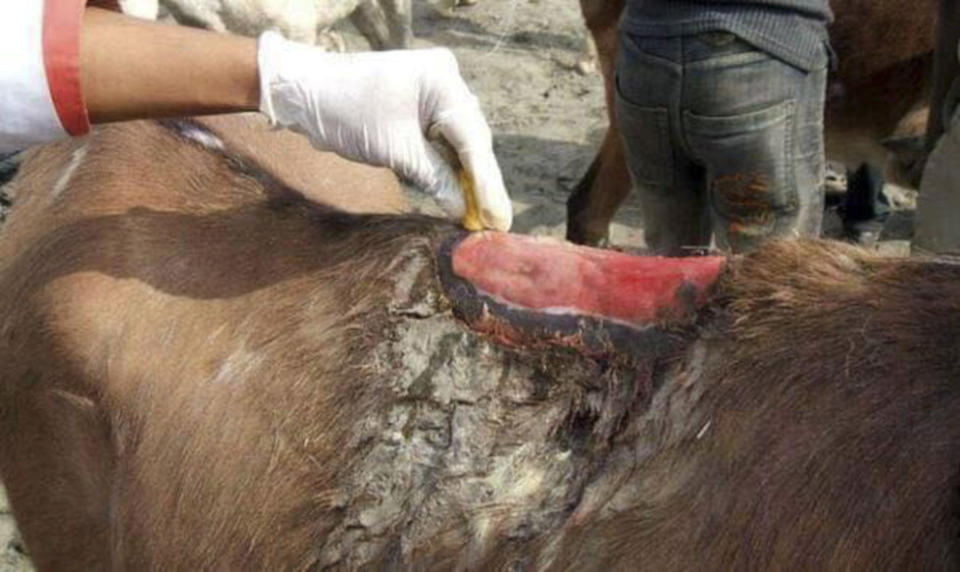British tourists who are ‘too fat’ are crippling donkeys on the Greek island of Santorini

British tourists have been accused of being “too fat” to ride the donkeys on the Greek island of Santorini.
Holidaymakers from the UK are among those who pay to ride the donkeys up the picturesque tourist hotspot’s cobbled winding hilly streets.
But animals rights campaigners have said many of them are “too fat” to sit on the animals.
Charities say the the donkeys have become so overworked that locals have been forced to cross-breed them with mules so they will be capable of carrying heavier loads.
Up to 1,200 tourists visit the small island every day between May and October to take in its beautiful scenery, and many hire donkeys to carry them up to the best viewpoints.


But animal activists say the donkeys are forced to carry more and more tourists who are obese, leaving them with spinal injuries and open wounds from ill-fitting saddles.
A spokesman for the Help the Santorini Donkeys charity said: “It’s recommended that animals should carry no more than 20% of their own body weight.
“The obese and overweight tourists, combined with the lack of shade and water as well as the sheer heat and 568 cobbled steps, is what is causing such a problem.
MORE: Over 500 people left stranded as Lombok earthquake kills 14 on Indonesian island
MORE: Pilot has passengers in fits of laughter after blaming long flight time on Brexit
“There should be a weight restriction. With donkeys it should be no more than eight stone, but how would that be imposed and who would be there to make sure that happened?
“Now they’re having to resort to using cross-bred mules because the donkeys just aren’t strong enough.”
The donkeys make up to five journeys per day up the white cobbled steps to the town of Fira in temperatures of up to 30C, say campaigners.
Christina Kaloudi, 42, moved to the island from Athens 10 years ago and set up the Santorini Animal Welfare Association to help overworked donkeys.
She said the number of overweight tourists from the US, Russia and the UK arriving on the island has trebled in the past 10 years.
She said: “The holiday season on islands is now a lot longer than it used to be, meaning that the donkeys are pretty much in work the whole year round.
“If they are not transporting tourists up the steps they are moving building materials or transporting heavy bags of rubbish.


“There are some good owners out there that follow the code but generally donkeys are worked into the ground and then disposed of when their working lives are over.
“They are made to work in terrible conditions without adequate water, shelter or rest and then I find them tied outside my shelter, barely alive.
“I have between 15 and 25 donkeys here, but I am glad that people bring them to me as they would normally be left to die or killed because owners don’t want to pay to have them put to sleep.
“For some their final walk is to the shelter because they are just hours from death.
“A lot of people just don’t care about the welfare of the animals but with social media, it’s a lot harder for the locals to hide the abuse.
“We don’t want to stop the locals making a living or using donkeys on the steps but to look after them in a fair and humane way.’
In the UK, the Donkey Sanctuary said: “The Donkey Sanctuary does not actively promote the use of donkeys and mules in any form of tourism.
“The Donkey Sanctuary has expressed concerns about the current working conditions and practices of many of the donkeys and mules working on the island of Santorini, with continued challenges around enforcement of regulations and issues such as lack of shelter from the sun, lack of water, excessive working hours and overloading.”



